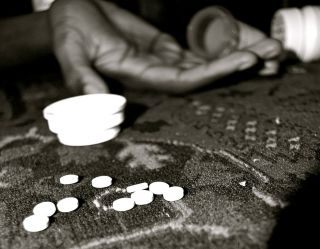Drug Overdose Prevention: 5 Ways to Help
If you or a friend are in the process of using, we are not judging…but make sure it is as safe as possible. This blog will cover 5 strategies for drug overdose prevention. Researchers from New York once found that nearly 98 percent of all accidental overdose deaths were caused by opiates, cocaine, and alcohol. Nearly 60 percent of those were attributed to two of those three drugs in combination (Coffin et al., 2003). Overdose is a very real phenomenon and recent deaths by such celebrities as Philip Seymour Hoffman are a reminder that addiction is not a poor man or rich man’s disease, but a human disease that can affect anyone anywhere.
Despite the staggering statistics and the combination of factors involved in drug addiction, an overdose can be prevented. Although the best way to prevent an overdose is to not use at all, it is undeniable that there are people who use it regardless. This article is not about judging use habits, but about meeting people where they are and if people are going to use, let’s make sure it’s done as safely as possible. It’s easy to turn a blind eye to that which we don’t like, but overdose is happening and it needs to be addressed whether we approve of whether people use or not. Read 5 strategies for drug overdose prevention below.
Drug Overdose Prevention: 5 Ways to Help
Mixing: As stated above, more than half of all accidental overdoses have been attributed to the combination of multiple drugs. Alcohol and other drugs, such as heroin, are considered downers, meaning that they both suppress neural transmission and reduce arousal. When taking alcohol with another downer (e.g., heroin or another opiate), breathing can be slowed down so much so that your heart stops completely. It may be best to avoid mixing substances, but If you do use multiple substances, use the substance that hits the fastest first. For example, if using alcohol and heroin, take the heroin first to “gauge the high” and then add.
Tolerance: Have you ever needed more of a drug to get the same effect as you used to? Or do you not get the same effect from using the same amount? If you answered yes to either of these, your body has built a tolerance to your drug of choice, meaning that your body has gotten used to the amount you use and you need more to get that initial effect. This can be particularly dangerous because it may lead you to use more than your body can handle.
Although it may not be ideal, people often use drugs or alcohol right after rehab. This is a reality that must be acknowledged regardless of our own views on it. Using post-rehab is often seen of a period of high risk for overdose because tolerance decreases after rehab since there was, theoretically, a period of abstinence. Many people will go back to using the same amount they used prior to rehab as soon as they get out. However, the body is no longer used to that amount and cannot handle it.
Quality/Purity: It’s important to make sure that you know what you’re using. I’ve worked with people who didn’t know they were using methamphetamine because it was laced into other drugs they were buying. Although it may not be a full proof method, talking to others and using the same dealer can be useful. It may be helpful to do a tester shot with every new batch to allow your body to adjust prior to using more heavily.article continues after advertisement
Using with Others: Different people have different patterns of use–some like using in the comfort of their own home while others use in a house full of users. Whatever the preference, having someone near or having someone you can trust to call in case you see that something isn’t right is an important part of preventing an overdose. So often people are found after days following a fatal drug overdose, but this could be prevented should there be someone else there or someone to call if realized early enough. If you are scared of getting in trouble yourself, several states have Good Samaritan laws that will protect you against minor drug law violations. If anything, it is always possible to call 911 as an anonymous caller.
Physical Health: As with anything related to your health, drink lots of water and try to eat. Avoid pills, especially Tylenol if you have any liver damage. Be aware of your body as well, as your physical health can impact your tolerance. Carry your inhaler if you asthma and try to be as cautious as possible.
By becoming aware of drug use habits as they relate to mixing, tolerance, quality of the drug being used, who we use with, and our physical health, we can begin to prevent accidental overdoses. The best form of overdose prevention may be abstinence, but the truth is not everyone is ready. The same way teenagers may have sex whether we like it or not, it may be best to give them safe sex practices instead of preaching abstinence because at the end of the day, it’s their decision. One sexual encounter can lead to a pregnancy. One drug hit can lead to an overdose. So let’s provide the safe use habits just in case.
I’ll leave you with a quote by Seth Jaffe who said “Heroin is hell disguised as heaven.”
If you know someone who has an addiction, start by sending him or her some of these tips. If you yourself have an addiction, begin to think about ways you can incorporate these tools into your habits for drug overdose prevention. There are many ways of getting help, research various Alcoholics/Narcotics Anonymous groups or Harm Reduction centers and find the type of treatment that works best for you. There is no one size fits all when it comes to treatment.


